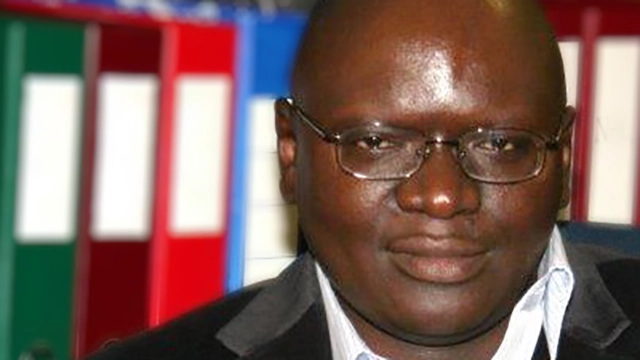
In a landmark achievement for physics, the United Kingdom and Ireland-based Institute of Physics this month published a first-of-its-kind monograph on phototransferred thermoluminescence authored by Rhodes University’s head of Physics, Professor Makaiko Chithambo.
Prof Chithambo, a recipient of the Vice Chancellor’s Distinguished Research and the Senior Research Awards at the University, has been at the forefront of research into point defects in materials. His extensive contribution to luminescence methods, including 135 papers and his first book published in 2018, underscore his pedigree in physics. In 2023, he was inducted into the Academy of Science of South Africa (ASSAf), joining the country’s top 38 foremost scientists in receiving the honour.
The new book, Phototransferred Thermoluminescence, examines phototransferred thermoluminescence in synthetic materials and natural materials, including minerals and gemstones, and provides snapshots on applications.
It delineates a detailed theoretical and experimental framework for understanding phototransferred thermoluminescence (PTTL) and its implications for studying material imperfections. Until now, this field has been approached qualitatively and in a survey-like manner.
“The eureka happened almost intuitively during a research visit to the University of St Andrews in Scotland. I was working in a lab when I had a hunch about mathematically modelling the age-old problem of charge transfer under phototransfer. I worked on the idea for days and developed several theoretical models to address the experimental results we had obtained. I was pleasantly surprised by how perfectly everything worked,” said Prof Chitambo.
Prof Chithambo’s work bridges the gap between conventional studies and contemporary advancements, benefiting from improved measurement techniques while introducing innovative mathematical approaches.
The book is comprehensive in its treatment of phototransferred thermolumniscence. It addresses the most up-to-date developments in theory, measurement and analysis and provides fresh explanations of the physics involved in transferring electrons between defects in solids.
“I am optimistic that the book provides an impetus for further research on instrumentation, measurement, mathematical analysis, and interpretation of the physics of defects using quantitative techniques," Prof Chithambo said.
The Deputy Vice-Chancellor for Research, Innovation and Strategic Partnerships, Dr Kwezi Mzilikazi, congratulated Prof Chithambo on the “significant contribution to developing new and valuable knowledge through this pioneering work. Cutting-edge scholarship requires intellectual tenacity and resilience. This accomplishment is the epitome of that tenacity,” she said.

